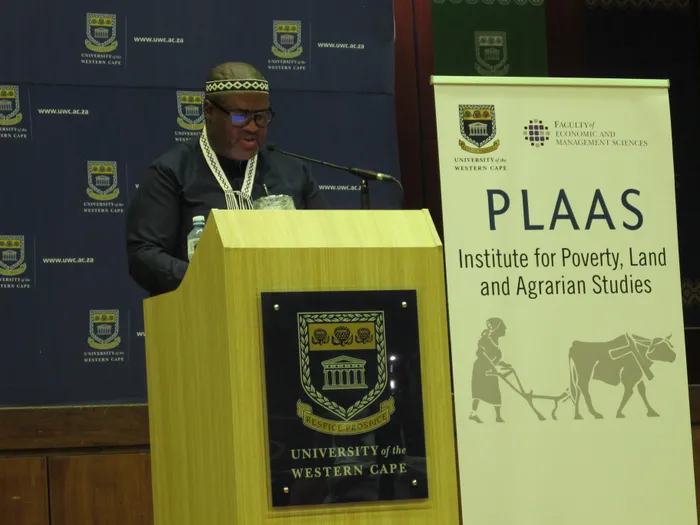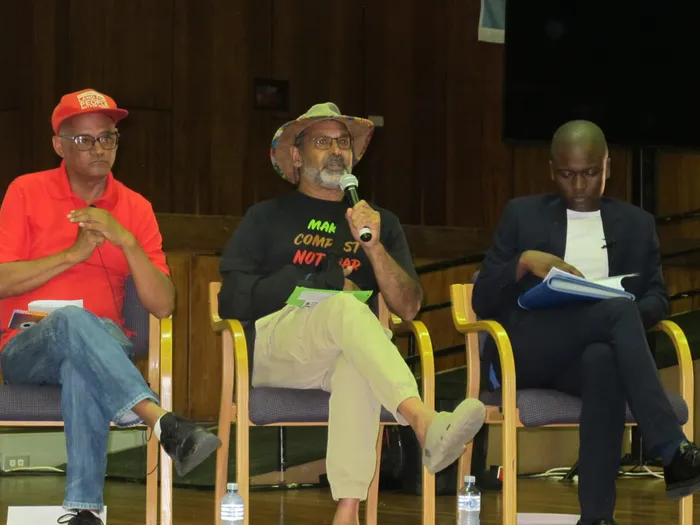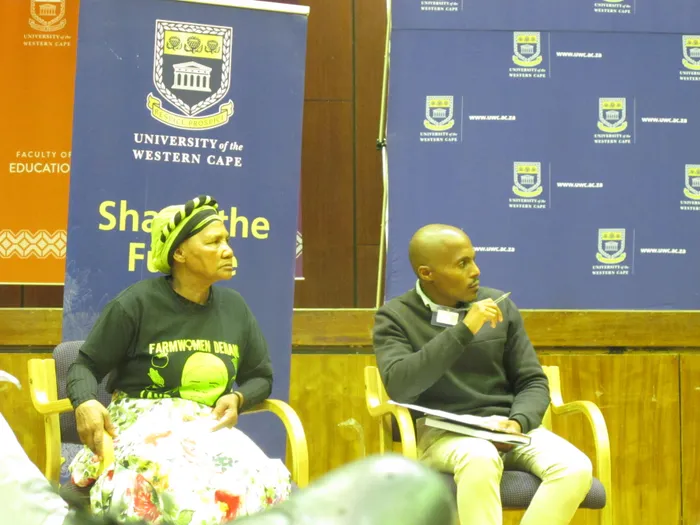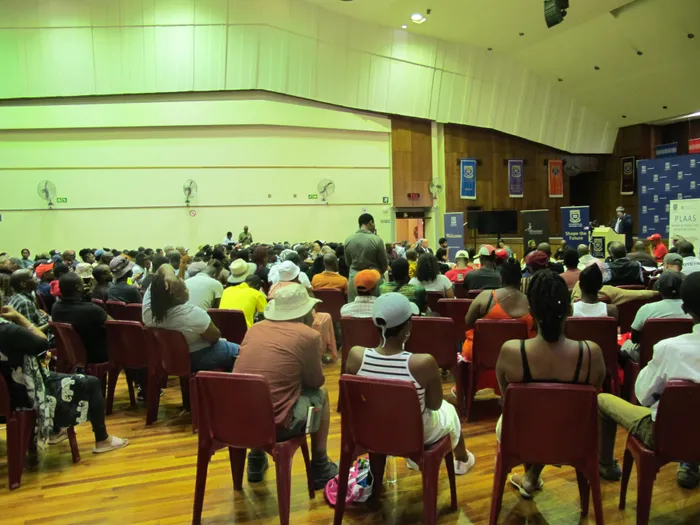‘The expropriation act is not land confiscation’ - Minister Nyontsho

The Minister of Rural Development and Land Reform, Mzwanele Nyhontso, said the Expropriation Act balances land reform with legal considerations.
Image: Sibulele Kasa.
The Expropriation Act of 2025 replaces the outdated 1975 Expropriation Act and aims to align land reform policy with the Constitution, Minister of Rural Development and Land Reform, Mzwanele Nyhontso, said in a public dialogue on Tuesday, February 11.
Land activists, students, farmworkers and the public had an opportunity to interact with the minister at the Jakes Gerwel Hall of the University of the Western Cape in Bellville.
“The 2025 act introduces a transparent expropriation framework that balances land reform with legal safeguards. It clarifies compensation principles, strengthens legal protection and introduces the subject of expropriation without compensation under specific conditions.
“The courts play an important role in interpreting this act. There is no predetermined decision of nil compensation for all cases where this act is involved. The court can arrive at nil compensation based on the merits of the case,” he said.
He stated that the 1975 act drafted during Apartheid was designed to serve state interests with minimal consideration for legal protection of affected property owners, socio-economic transformation and fair compensation.
“One of the major shifts in the new legislation is the distinction between public purpose and public interest. Public purposes include infrastructure projects, public service expansion and environmental compensation, while public interest focuses on land reform and equitable resource distribution,” he said.
The dialogue was organized by the Institute for Poverty, Land and Agrarian Studies (PLAAS) and the Tshisimani School for Activist Education.
The panelists were Bettie Fortuin from Women on Farms Project, Samora Majeke of social movement Intlungu YaseMatyotyombeni, Bevil Lucas of housing activists Reclaim the City, Nazeer Sonday of the Food and Farming Campaign and SRC president Mcntosh Khasembe.
“We, as women on farms, vote in favour of land expropriation without compensation. If I had land today, I would have a farm and my own business. We have been waiting, for a long time, for one woman, one hectare,” Ms Fortuin said.
Mr Majeke said they were not in support of the act. “This expropriation does not serve our purpose, but it serves the purpose of the investors.”
Mr Sonday said he was in full support of the expropriation act.
Mr Lucas said: “We work in the urban space to try and challenge the narrative of the continuation of spatial Apartheid that is not being undone… We will take up the challenge to undo spatial Apartheid.”
Mr Khasembe emphasised the need to allocate land for student accommodation.
The expropriation act recently sparked controversy after United States President Donald Trump froze aid to South Africa last month.
In an executive order signed on Friday February 7, Mr Trump said the law showed a “shocking disregard” for citizens’ rights and would "enable the government of South Africa to seize ethnic minority Afrikaners’ agricultural property without compensation."
President Cyril Ramaphosa signed the Expropriation Bill into law on Thursday January 23.

Pictured are the panelists. From left: Bevil Lucas of Reclaim the City, Nazeer Sonday of Food and Farming Campaign and SRC President Mcntosh Khasembe.
Image: Sibulele Kasa.

Pictured are other panelists in the public dialogue. From left: Bettie Fortuin from Women on Farms Project and Samora Majeke of Intlungu YaseMatyotyombeni.
Image: Sibulele Kasa.

Land activists, students, farmworkers and the public had an opportunity to interact with the minister in a public dialogue at the Jakes Gerwel Hall of the University of the Western Cape in Bellville.
Image: Sibulele Kasa.
Related Topics: